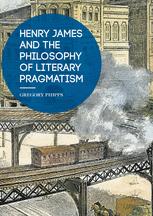

Most ebook files are in PDF format, so you can easily read them using various software such as Foxit Reader or directly on the Google Chrome browser.
Some ebook files are released by publishers in other formats such as .awz, .mobi, .epub, .fb2, etc. You may need to install specific software to read these formats on mobile/PC, such as Calibre.
Please read the tutorial at this link: https://ebookbell.com/faq
We offer FREE conversion to the popular formats you request; however, this may take some time. Therefore, right after payment, please email us, and we will try to provide the service as quickly as possible.
For some exceptional file formats or broken links (if any), please refrain from opening any disputes. Instead, email us first, and we will try to assist within a maximum of 6 hours.
EbookBell Team

4.8
84 reviewsThis book examines the interdisciplinary foundations of pragmatism from a literary perspective, tracing the characters and settings that populate the narratives of pragmatist thought in Henry James’s work. Cultivated during a postwar era of industrial change and economic growth, pragmatism emerged in the late nineteenth century as the new shape of American intellectual identity. Charles Peirce, William James, and Oliver Wendell Holmes, Jr. were close friends who founded different branches of pragmatism while writing on a vast array of topics. Skeptical about philosophy, William James’s brother, Henry, stood at the margins of this group, crafting his own version of pragmatism through his novels and short stories. Gregory Phipps argues that James’s fiction weaves together the varied depictions of individuality, society, experience, and truth found in the works of Peirce, Holmes, and William James. By doing so, James brings to narrative life a defining moment in American intellectual and material history.